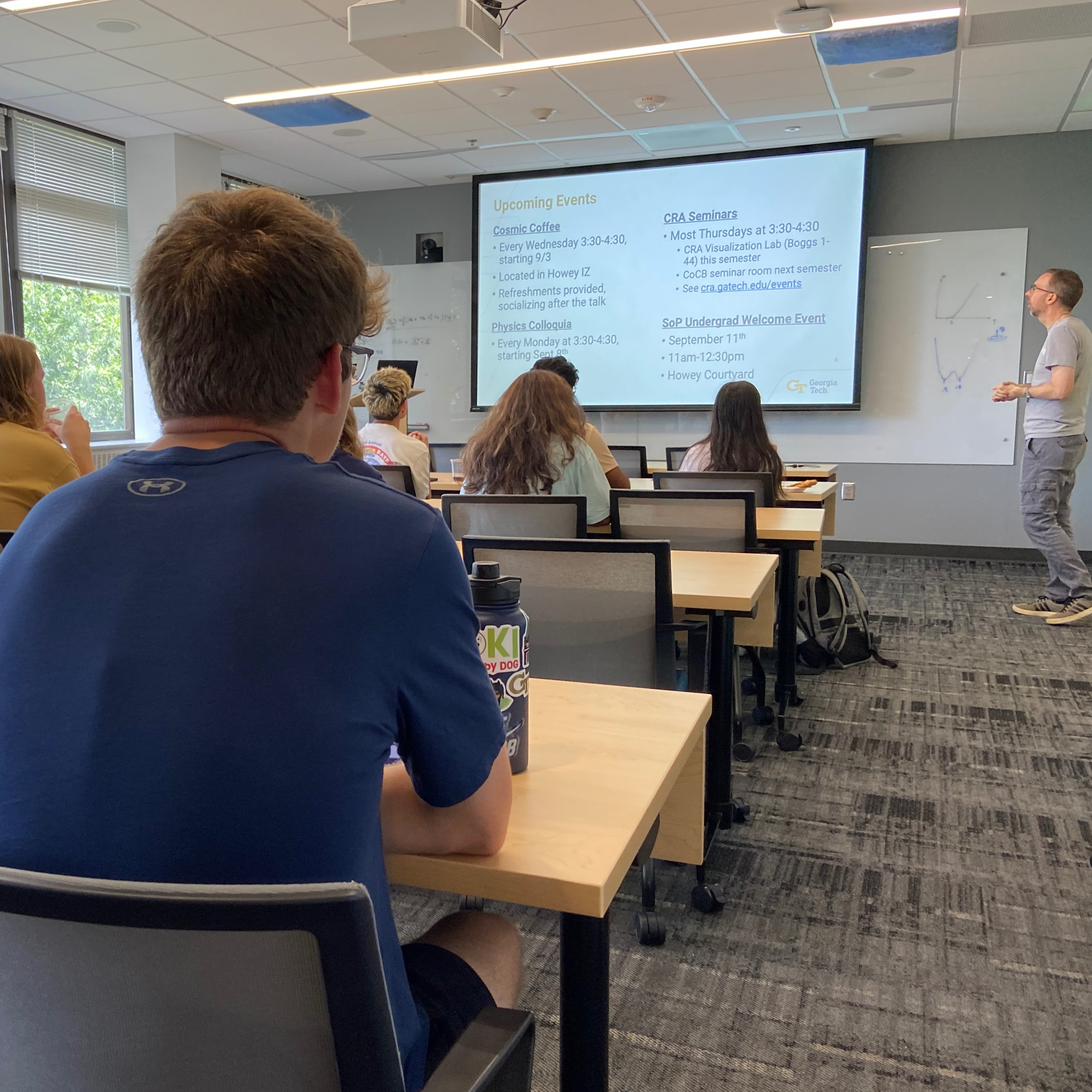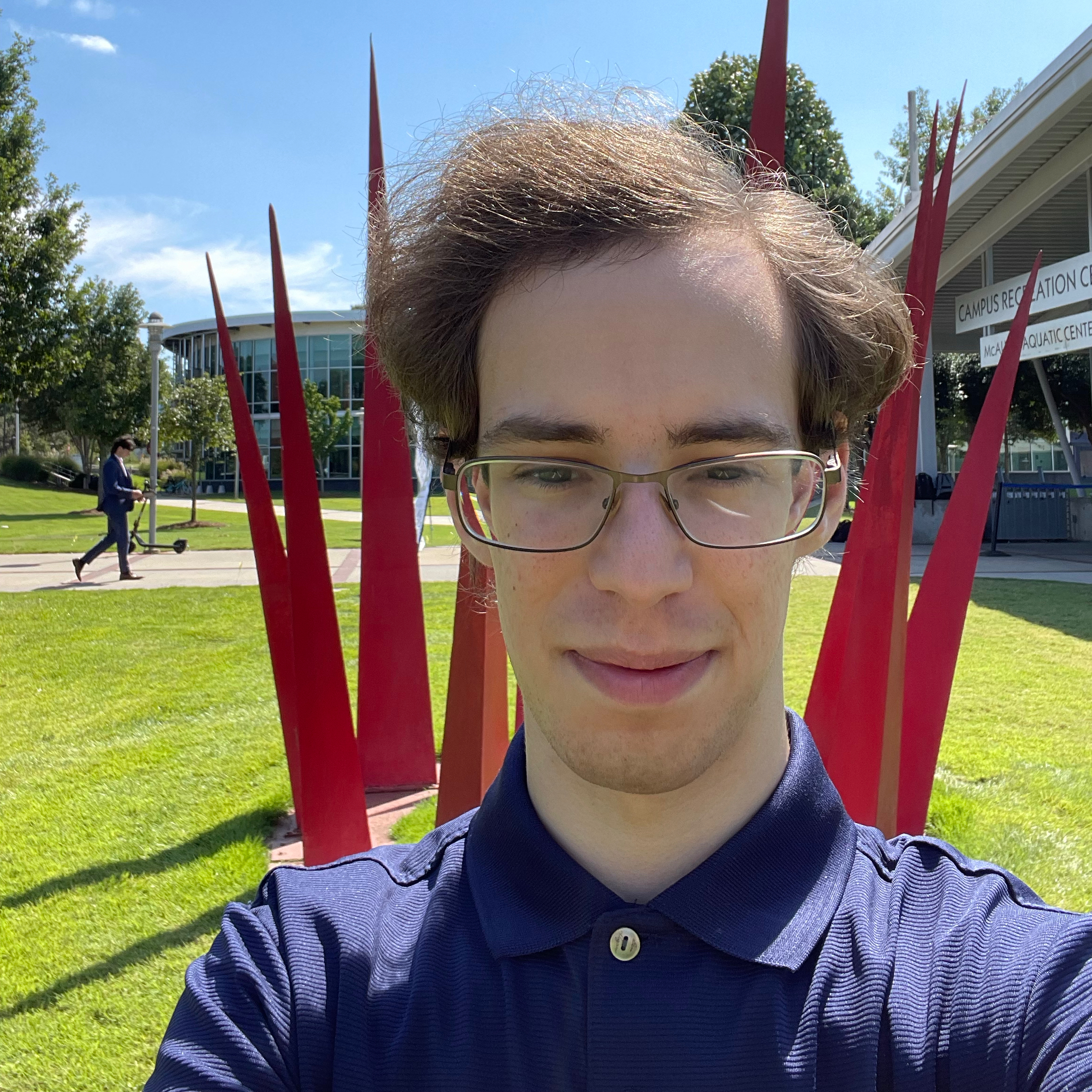One of Georgia Tech’s newest undergraduate degree offerings — a B.S. in Astrophysics — welcomed its first students in August.
The astrophysics program, which includes both a major and a minor, introduces students to the fundamental physical processes and laws that govern the cosmos. This foundational curriculum is complemented by training in computational and data analysis techniques.
“Our new undergraduate program is forward-facing, focusing on the future of astronomy and astrophysics as well as how big data and computing are driving innovation and discovery,” says Program Director David Ballantyne, associate chair for Academic Programs and professor in the School of Physics.
Designed for students interested in research or non-research career paths, the B.S. in Astrophysics was created in response to growing student demand for courses and research opportunities in the field.
“Astrophysics is a great major at Georgia Tech because it teaches the critical thinking and technical skills students need not just for astrophysics but also for a wide variety of STEM-related careers,” adds Paul Sell, program advisor, senior academic professional in the School of Physics, and director of the Georgia Tech Observatory.
More than two dozen students have already declared the astrophysics major or minor; these numbers are expected to grow as more students learn about the program.
Third-year student Ishita Chintala switched her major from general physics to astrophysics in order to move closer to her childhood dream of working in the space industry.
“Astrophysics brings a certain kind of magic into my life; a kind of magic that helps me not only understand the world around me, but also helps me understand my place in the universe,” she explains.
Students enrolled in the program will have the opportunity to engage directly with the work taking place at the Center for Relativistic Astrophysics (CRA). Established in 2008, the CRA includes more than a dozen faculty and research scientists with expertise spanning high-energy astrophysics, extrasolar planets, gravitational-wave astronomy, and astroparticle physics.
Access to undergraduate research opportunities, including those offered by CRA faculty, is one reason for Marshall Honaker’s enthusiasm about the major.
“I’m most excited about getting hands-on research experience and taking advanced astrophysics classes that dive deeper into topics like cosmology and stellar evolution, especially at Georgia Tech,” says Honaker, a first-year student from Warner Robins, Georgia. He aims to pursue a research career to increase our understanding of the universe.
Andrew Heller, a first-year student from Tucker, Georgia, chose the astrophysics major because of his curiosity about and desire to advance our knowledge of everything beyond Planet Earth.
“As an astrophysics major, I'm very interested in participating in multi-messenger astronomy,” says Heller, referring to a key research focus of the CRA. “The ability to discover different things about an event or object by studying it with different wavelengths or particles is super exciting!”
Undergraduate students interested in declaring the astrophysics major or minor should follow the standard major change or the minor addition/change process.
For More Information Contact
Writer: Lindsay C. Vidal







